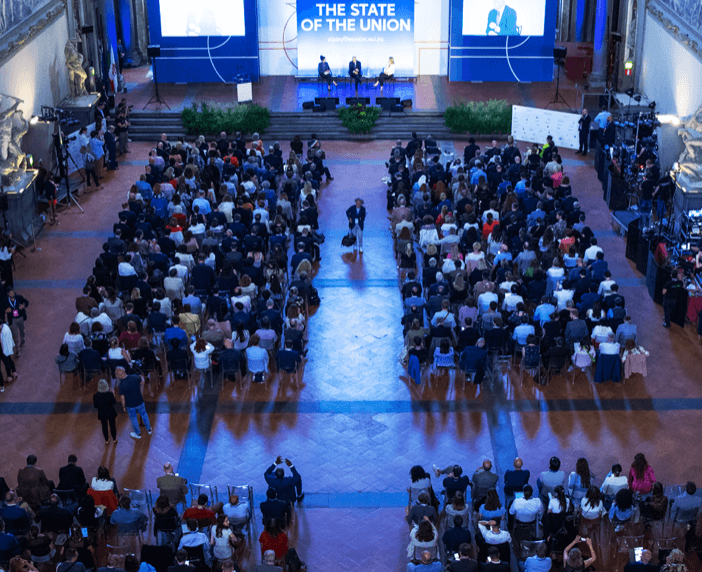European Union University Convenes 14th State of the Union Conference Ahead of European Elections

The European Union University (EUU) recently hosted the 14th edition of The State of the Union conference, a seminal gathering that brought together eminent scholars, policymakers, and globally recognized experts to deliberate on the pivotal challenges confronting Europe as it approaches the upcoming European elections.
This year’s conference, themed "No Country Alone: Collaborative Futures for Europe," emphasized the interconnected nature of contemporary challenges and the necessity for collective European action. The event underscored the importance of unity in addressing issues ranging from economic instability and climate change to digital transformation and geopolitical tensions.
Key Discussions and Perspectives
The conference was inaugurated with a compelling address by EUU’s President, Prof. Dr. Renata Weber, who articulated the critical role of higher education and research institutions in fostering informed policy debates and crafting innovative solutions. "In a world marked by complexity and interdependence, the European Union’s strength lies in its collective capacity to adapt and respond," stated Prof. Dr. Weber.
One of the highlights of the conference was a panel discussion featuring a diverse group of leaders, including former heads of state, senior EU officials, and leading academics, who explored strategies for enhancing Europe's resilience against economic shocks and environmental crises. The panel also discussed the implications of digital technology advancements on European societies and economies.
Focus on Sustainability and Inclusion
A significant focus of the discussions was on sustainable development and social inclusion, recognizing the urgent need to integrate these priorities into the broader European agenda. Experts from various sectors presented case studies and research findings that demonstrated successful integration of sustainability practices within business and governance models across the EU.
The conference also provided a forum for young leaders and activists to voice their perspectives, particularly concerning climate action and social justice. Their involvement highlighted the EUU’s commitment to inclusive dialogue and the empowerment of the next generation of European leaders.
Preparing for the Elections
With the European elections on the horizon, several sessions were dedicated to examining the potential impacts of electoral outcomes on EU policies and the union’s global standing. Political analysts and scholars discussed voter trends, the rise of new political movements, and the role of media in shaping public opinion.
Outcomes and Continuing Dialogues
The State of the UTC conference concluded with a call to action for continued collaboration among European nations to tackle shared challenges more effectively. The European Union University announced plans to establish a series of follow-up workshops and policy roundtables that will continue to explore the themes discussed during the conference.
The EUU remains dedicated to facilitating critical discussions that contribute to a more robust and unified European community. Detailed findings and recommendations from the conference will be compiled into a comprehensive report, which will be made available to policymakers, academic institutions, and the public.
Last updated: June 04, 2024

